Denmark study visit on traffic safety education and urban road safety 2024
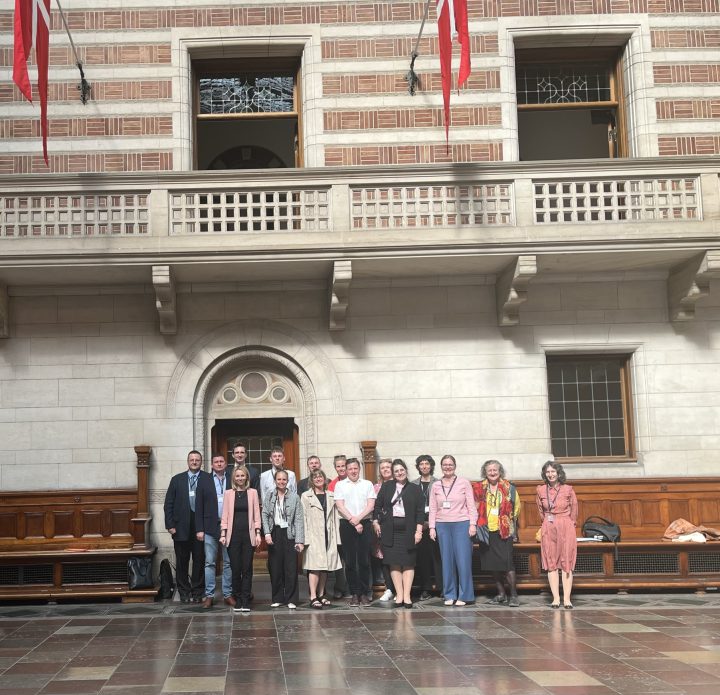
A delegation with representatives of national and regional authorities from the Ministry of Citizen Protection, Ministry of Infrastructure and Transport, and City of Athens in Greece, and the Police Headquarters, Ministry of Infrastructure, National Road Safety Council, and Małopolska Voivodeship from Poland, accompanied by ETSC, traveled to Copenhagen, Denmark, on May 15-16 as part of a study visit on the topics of traffic safety education and urban road safety.
The visit was co-organised together with the Danish Road Safety Council and supported by the Municipality of Copenhagen, as part of the EU Road Safety Exchange project. It included meetings with traffic education experts and representatives from the Municipality of Copenhagen at the city hall, a walking tour of the city with on-site explanations of urban infrastructure solutions, as well as a visit to the Danish Road Safety Council.
The study visit kicked off at Copenhagen City Hall, where participants were introduced to Denmark’s road safety data and recent developments. This was followed by an insightful session led by Danish Road Safety Council experts, who provided a thorough explanation of traffic safety education in Denmark: clarifying the legislation and responsibilities associated with traffic safety education, while also introducing the audience to the educational materials created by the Danish Road Safety Council.
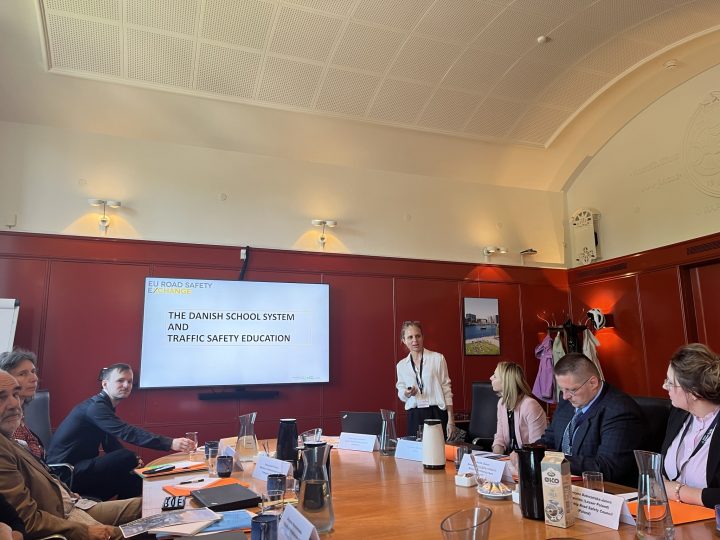
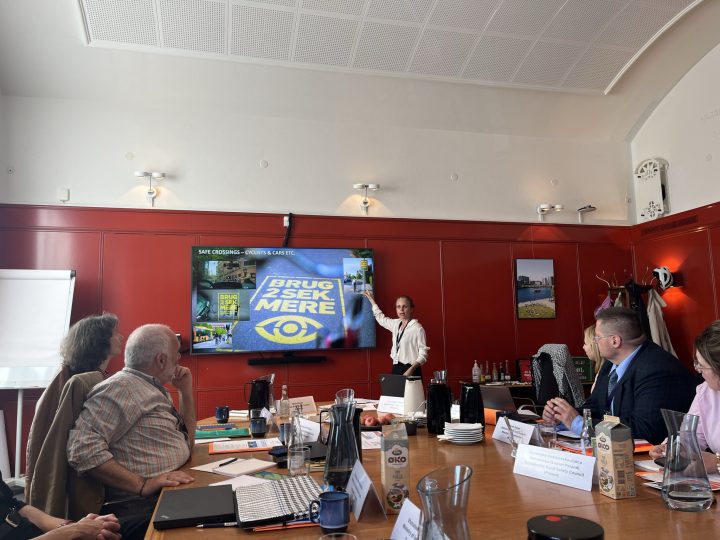
Further presentations and discussions revolved around the schools actively teaching traffic safety education and strategies to encourage more schools to participate. Representatives from the Municipality of Copenhagen then shared insights into their local road safety plan, emphasising measures aimed at improving safety for two-wheelers and presenting the broader legal framework for such vehicles.
Additionally, they provided an overview of how traffic planning is done to ensure the safety of all road users. Colleagues from the Danish Road Safety Council expanded on this with presentations on their campaigns, addressing issues ranging from blind spots during right turns to the safety of elderly cyclists
Later in the afternoon, participants had the opportunity to see firsthand how various urban road safety solutions were implemented during a guided walking tour around the city.
Delegations were shown before-and-after images of different locations, showcasing the evolution of infrastructure aimed at ensuring road users’ safety, particularly for vulnerable road users. This included instances of pavement modifications to accommodate cyclists and an examination of how dedicated bicycle lanes impact cyclists’ safety, especially during right turns.
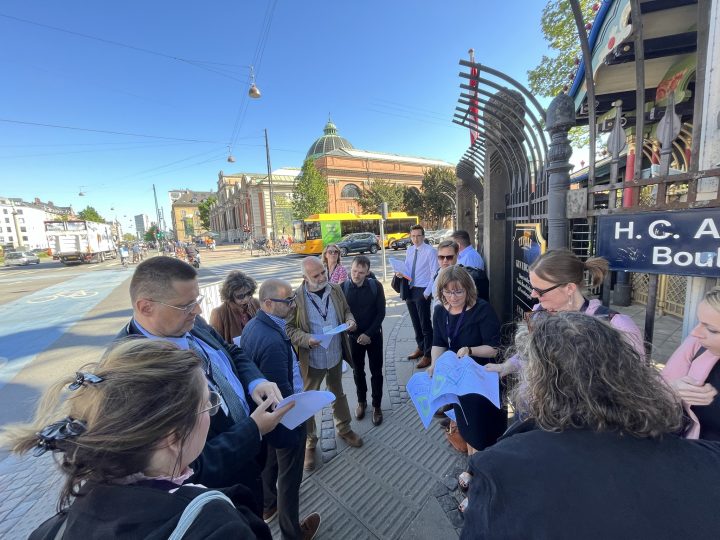
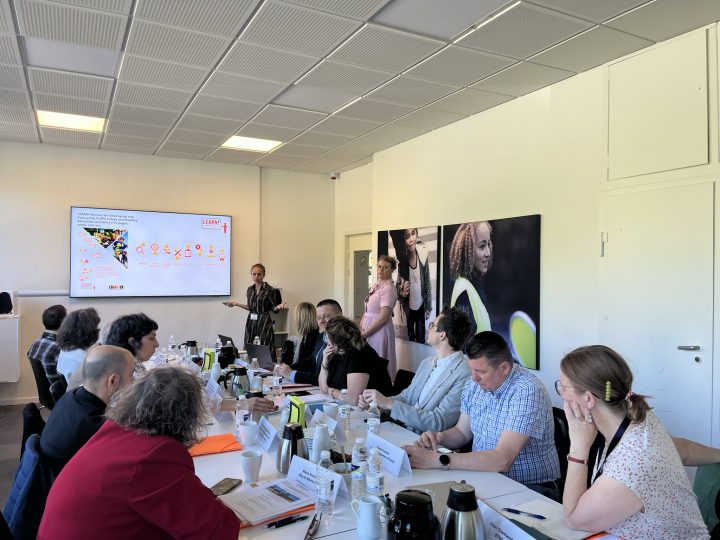
On the second day, participants delved deeper into the topic of traffic safety education, with in presentations focused on the development of new educational materials and campaigns, as well as resources tailored for preschoolers and newsletters targeted at parents.
Building on the discussion of powered-two-wheelers from the previous day, later presentations offered a detailed exploration of how moped and motorcycle education is conducted, outlining the requirements and testing conditions involved.
Later, participants were joined by a police officer who provided valuable insights into the legal framework and prevention strategies regarding drink and drug driving. They explained the roadside drug testing procedures and provided an overview of the role of enforcement and counseling in addressing this issue.
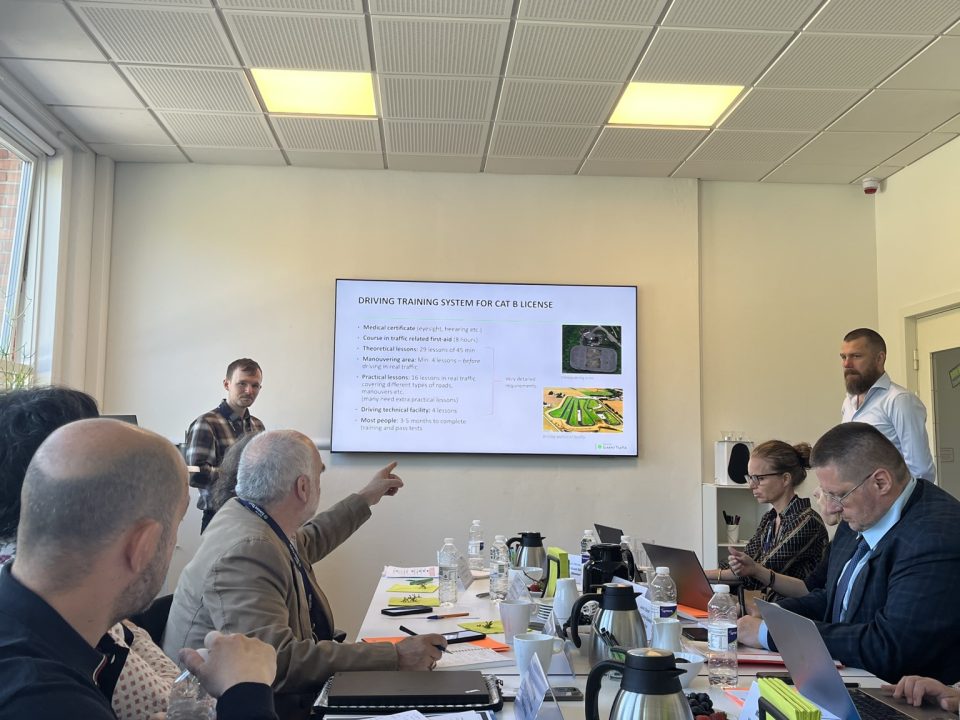
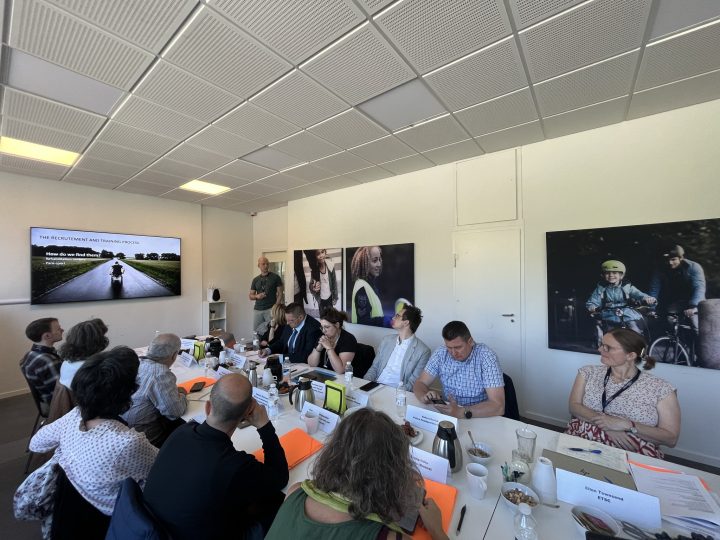
Danish colleagues also presented the Sikker Trafik LIVE program, which delves into the aftermath of road accidents, aiming to illustrate the life of those involved after such incidents, including responsibilities, recovery, and the lasting consequences on individuals and those around them.
This interactive program engages over 30,000 pupils annually, drawing attention to the fact that they belong to an age group particularly vulnerable to road collisions.
Concluding the discussion on traffic safety education, experts from the Danish Road Safety Council delivered a presentation on traffic contact teachers. They explored the training and engagement of these teachers, highlighting annual courses tailored for both new and experienced educators, as well as network meetings facilitated in collaboration with municipalities across Denmark.
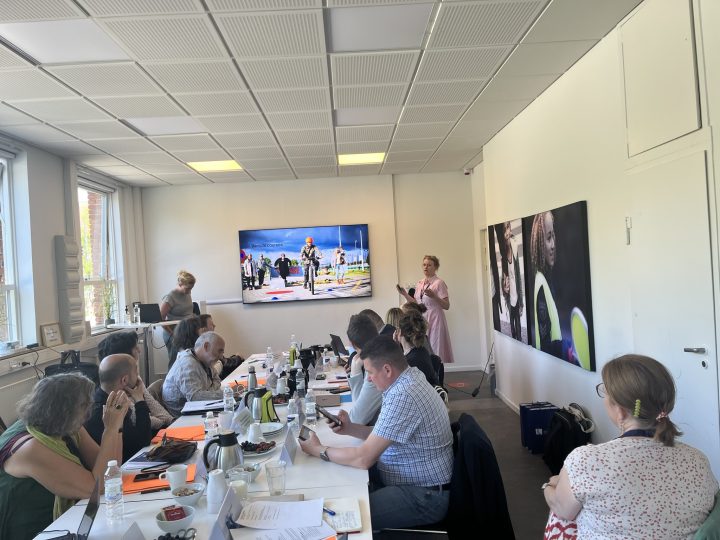
Both the Greek and Polish delegations expressed satisfaction with the shared experiences, having had the opportunity to delve deeply into the complexity of traffic education in Denmark and urban road safety measures in Copenhagen. Engaging discussions and insightful questions emerged, leading colleagues to agree on continuing their cooperation. Plans were made for upcoming workshops in both Greece and Poland, where Danish experts will also participate to further explore these important topics.